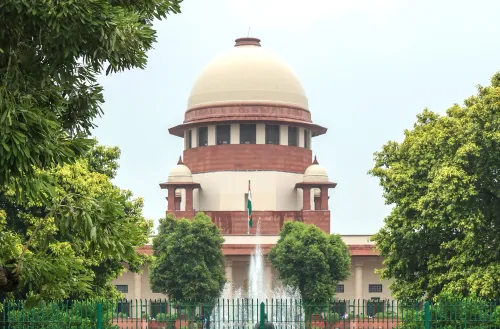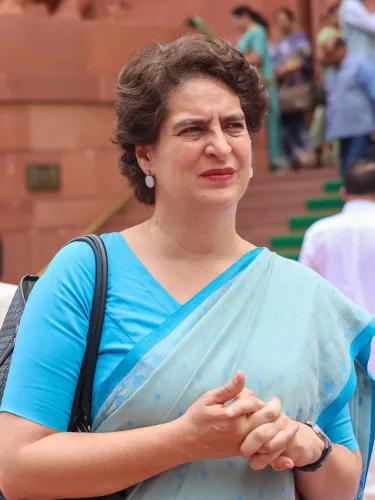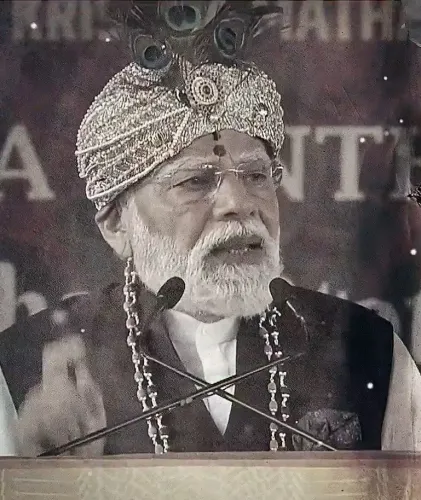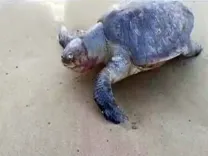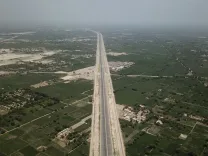Did Jwala's 130-km Trek Test India's Wildlife Corridor?
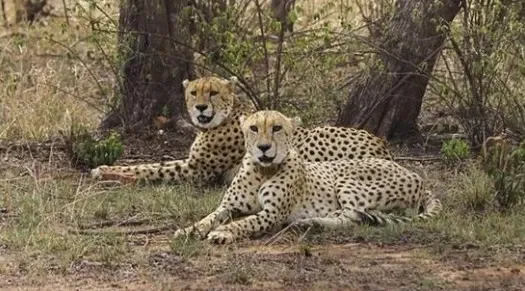
Synopsis
Key Takeaways
- Jwala's journey emphasizes the significance of India's inter-state cheetah corridor.
- The successful rescue operation showcases effective collaboration between Madhya Pradesh and Rajasthan.
- Monitoring and community awareness are crucial for minimizing human-wildlife conflicts.
- The corridor covers 17,000 square km of protected landscapes.
- Healthy adaptations of wildlife are essential for ecological balance.
Sheopur (Madhya Pradesh), Aug 13 (NationPress) In a stunning evaluation of India’s newly constructed inter-state cheetah corridor, a wild female cheetah named Jwala from Madhya Pradesh’s Kuno National Park journeyed approximately 130 km into Rajasthan’s Sawai Madhopur district before being safely rescued and returned.
This event signifies the first verified inter-state migration of a cheetah since the corridor’s establishment, igniting both ecological optimism and logistical challenges.
Jwala, equipped with a radio collar for tracking, was initially seen on August 11 in the Manpur region of Sheopur district alongside her cub.
By the following day, she had parted ways with her cub and crossed the Chambal riverbanks, ultimately arriving at Baler village in Rajasthan, as reported by officials.
On the morning of August 13, villagers found her within a goat enclosure and notified the Ranthambore Tiger Reserve (RTR) team.
Early rescue attempts were unsuccessful due to her aggressive behavior, which led RTR officials to reach out to the Kuno team.
The Kuno rescue team arrived by mid-morning and successfully tranquilized Jwala within 15 minutes, removing the goat carcass to avert human-wildlife conflicts.
She was subsequently transported back to Kuno National Park, where she rejoined a population of 26 cheetahs, consisting of nine adults and 17 Indian-born cubs, according to a statement from the Madhya Pradesh government on Wednesday.
Coordinated efforts from forest and police officials from both Madhya Pradesh and Rajasthan ensured the safety of both the animal and local residents.
The management of Kuno expressed appreciation for the support received during the operation.
This incident follows months after Rajasthan was formally integrated into India’s inaugural inter-state cheetah conservation corridor, covering 17,000 square km across protected landscapes in Madhya Pradesh and Rajasthan.
The corridor’s objective is to foster the natural movement of cheetahs and restore grassland ecosystems. While the successful rescue underscores the corridor’s ecological promise, it also highlights the hurdles of managing free-ranging predators in human-influenced areas.
Wildlife specialists assert that such movements are indicative of healthy adaptation, yet they advocate for improved monitoring and community awareness to mitigate potential conflicts.


